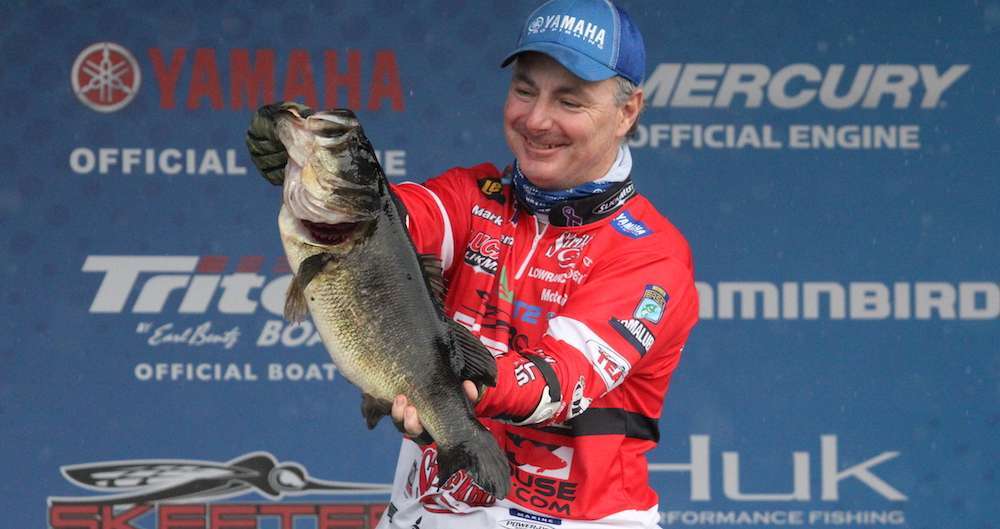
Every bass angler wants a giant. There’s something about that 10-pound mark that’ll set you apart from your buddies. But is it a realistic goal?
The answer to that question is maybe. It depends on where you fish, how hard you’re willing to work and how many fishless days you’re willing to endure.
In my last column we talked about the importance of cold water and rest when it comes to making a giant bass. Along with that, however, a giant will need a fairly long growing season and plenty of easily captured forage. Those conditions only exist in a few places — the Deep South, Florida, Texas and California for the most part.
And even if a bass lives in one of those places, and has everything else she needs, she’ll still have to be blessed with special genetics. Very few bass have the physical makeup to grow into a giant. Think about this in the context of an NBA basketball player. How many men grow that tall? And out of those who do, how many have the physical skills to play at that level?
Back when I was studying fish biology I learned some interesting facts about big bass. If I remember right — it’s been a while — only one in 5,000 bass fry make it to 2 pounds. Out of those 5,000 only one will make it to 5 pounds. We didn’t have any information beyond that, but you can do the math. Giants are few and far between.
My own fishing career serves as an example. I’ve fished 35 years and I spend an average of 150 days each year on the water. Assuming I average eight hours per day fishing that’s a total of 42,000 hours of bass fishing. During those hours I’m targeting bigger fish. That’s the only way you win a tournament.
My largest bass to date is a 13 pound, 9 ounce brute. I have another one that weighed in at 11 pounds. Past that I’ve caught another four or five that tipped the scales at 10 pounds. That’s a total of six or seven double-digit bass during my entire career.
Keep something else in mind, too. I’ve fished a good portion of my life in the bigger bass places I just mentioned. And one other thing: Every 10-pound or better bass I’ve ever caught has come from Texas waters.
In truth, that’s better than average. There are a lot of professional anglers who have fished as long as me but haven’t caught more than one, some none at all. That’s not because I have better bass fishing skills. It’s because luck is a factor when it comes to giants.
There is another side to what I’m saying, however. There are anglers who make it their life’s goal to catch giants. They spend countless days investigating the waters they fish. They find the spots on the spots that are likely to harbor a giant and then they spend day after day trying to catch her. They’re single-minded about what they do, and they’re willing to pay a high price to do it.
Do you have that mindset? If so, and if you live where the giants live, you can do it. For most of us, however, we’ll have more fun if we fish hard and hope for the best.
If that hope turns into reality and you are fortunate enough to catch one, please handle it with care. Keep her wet and support her belly while you take a handful of pictures and then release her immediately. It’s important to preserve her genetics.

